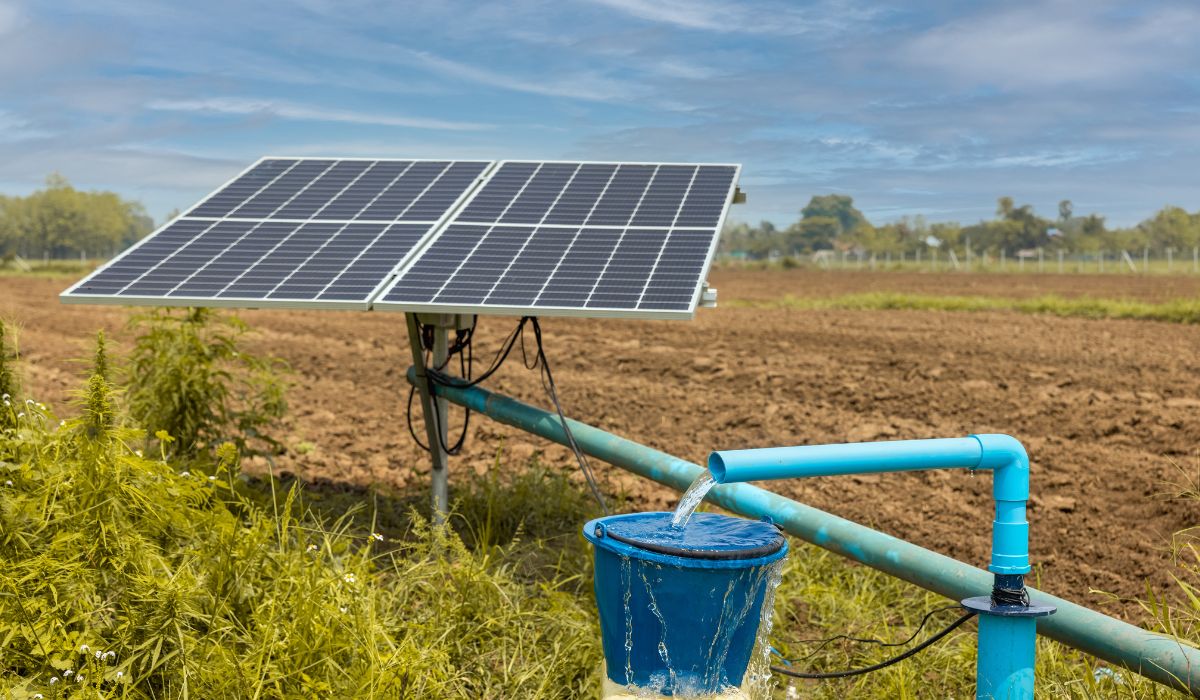In the heart of Africa’s vast landscapes, where sprawling savannahs meet towering mountains, and deserts touch lush forests, lies a persistent challenge that has shaped the lives of millions for generations—energy poverty. For many rural African communities, access to electricity remains a distant dream, tethered to a web of socio-economic challenges, geographical isolation, and historical neglect. But today, that dream is within reach, thanks to a revolution that promises to power a brighter and more sustainable future: renewable energy.
This article delves into the transformative potential of renewable energy for rural communities in Africa, where sustainable solutions offer a beacon of hope for millions who still live in darkness. More than just a technological advancement, renewable energy represents a profound shift in the quality of life for these communities, addressing a fundamental need for progress, economic empowerment, and dignity.
The Struggle for Energy Access in Africa’s Rural Heartlands
The statistics paint a grim picture: approximately 600 million people in sub-Saharan Africa still lack access to electricity. Rural areas bear the brunt of this energy poverty, with electrification rates as low as 14% in some regions. In these communities, life often revolves around daylight, with homes relying on expensive and hazardous alternatives such as kerosene lamps or wood-burning stoves. The absence of electricity limits not just basic conveniences, but access to healthcare, education, economic opportunities, and even clean water.
For children, the lack of lighting after sunset means limited time for studying, a reality that has far-reaching consequences on education and the potential for upward mobility. Health clinics without reliable energy supplies cannot refrigerate vaccines, sterilize equipment, or provide nighttime care, putting lives at risk. For farmers, the absence of electric-powered irrigation systems makes it difficult to increase crop yields, compounding the cycle of poverty.
In the face of such challenges, renewable energy is emerging as not just a solution, but a lifeline—a way to bring light to darkness, progress to stagnation, and hope to despair.
The Promise of Renewable Energy
Africa is uniquely positioned to harness renewable energy sources, with abundant sunlight, wind, rivers, and geothermal activity. Renewable energy technologies—such as solar, wind, hydropower, and biomass—are well-suited to meet remote communities’ needs, where traditional energy infrastructure is often too costly or logistically unfeasible.
1. Solar Power: Africa boasts some of the highest solar irradiation levels in the world, making solar power an incredibly promising solution for rural areas. Solar home systems and mini-grids can be deployed in off-grid communities, providing a decentralized energy source without extensive infrastructure. These systems offer a simple yet powerful solution that can transform homes, schools, and health clinics with clean, sustainable energy.
2. Wind Energy: Coastal and highland areas in Africa also have significant potential for wind energy. While wind power infrastructure is more complex and may require larger-scale investment, it remains a viable option for certain regions. Community wind projects can empower local populations to manage and benefit from their energy sources, reducing reliance on imported fuels and promoting local ownership.
3. Hydropower: Small-scale hydropower projects can generate electricity from rivers and streams, providing a reliable source of energy for nearby communities. These projects are particularly useful in regions with abundant water resources and can offer long-term, low-maintenance energy solutions.
4. Biomass and Biogas: In areas with abundant agricultural waste, biomass energy is an opportunity to convert organic materials into energy. Biogas systems, which convert animal and plant waste into usable energy, have already proven successful in several African countries. They offer a double benefit: reducing waste and providing a sustainable source of power for cooking and heating.
Together, these renewable energy solutions present a mosaic of possibilities, uniquely tailored to the diverse needs and geographical conditions of Africa’s rural communities.
The Ripple Effect: How Renewable Energy Transforms Lives
The benefits of renewable energy in rural communities extend far beyond the provision of electricity. The ripple effect touches almost every aspect of life, from education to healthcare, to economic empowerment and environmental protection. Let’s explore some of the most profound impacts:
1. Education: Powering the Future
In many rural communities, children often face a significant barrier to education: darkness. With no electricity at home, they rely on kerosene lamps for light, which are not only costly but emit toxic fumes that harm respiratory health. This severely limits their ability to study after dark, placing them at a disadvantage compared to their peers in urban areas.
Renewable energy changes this narrative. Solar-powered lights enable students to study for longer hours, improving academic performance and opening doors to future opportunities. Schools powered by solar panels can operate longer, using computers and other modern technologies that enhance learning. These small shifts can profoundly impact the trajectory of young lives, shaping the leaders, innovators, and changemakers of tomorrow.
2. Healthcare: Life-Saving Power
In healthcare, the availability of reliable electricity can mean the difference between life and death. In rural African communities, health clinics often operate without consistent access to power, making it difficult to store vaccines, power medical devices, or provide care during the night. The lack of refrigeration for vaccines, in particular, has been a major obstacle in public health efforts to combat diseases like polio, measles, and COVID-19.
Renewable energy can provide the consistent power that rural clinics need. Solar-powered refrigerators can keep vaccines safe, while reliable lighting allows for safer childbirth and emergency procedures. These improvements contribute directly to better health outcomes, lowering maternal and infant mortality rates and improving the overall quality of healthcare.
3. Economic Empowerment: From Subsistence to Prosperity
Energy access is also a catalyst for economic growth. In rural African communities, many people rely on subsistence farming to make a living. With access to electricity, farmers can irrigate their fields more efficiently, store perishable goods, and process crops, leading to higher yields and better incomes. Renewable energy also creates opportunities for entrepreneurship. Solar-powered mills, for instance, can process grain faster and more efficiently, while small-scale solar businesses offer phone charging, water pumping, and other essential services.
Access to renewable energy allows local businesses to thrive, creating jobs and driving economic development. The shift from dependency on fossil fuels or imported energy to locally-generated renewable power helps reduce energy costs, freeing up resources for investment in other sectors.
4. Environmental Protection: Sustainable Progress
Africa’s rural communities are often the most vulnerable to the impacts of climate change, despite contributing the least to global emissions. Erratic weather patterns, droughts, and flooding have devastating effects on agriculture and livelihoods. By embracing renewable energy, Africa can lead the way in mitigating climate change while building resilience against its effects.
Solar, wind, and hydropower technologies offer clean alternatives to the burning of fossil fuels, reducing greenhouse gas emissions and preserving Africa’s rich ecosystems. Renewable energy solutions are not only sustainable for the environment, but they also help protect biodiversity, forests, and water resources that many communities depend on for their livelihoods.
Challenges to Overcome
While the potential of renewable energy for rural communities in Africa is immense, it is not without challenges. These include:
- Initial Costs: Renewable energy technologies, particularly solar and wind systems, require significant upfront investment. For many rural communities, these costs can be prohibitive without external support from governments, NGOs, or international organizations.
- Technical Expertise: Installing and maintaining renewable energy systems requires specialized knowledge. Training local technicians and creating a skilled workforce capable of managing these systems is essential to their long-term success.
- Financing Models: Access to affordable financing is key to scaling renewable energy projects in rural areas. Innovative models like pay-as-you-go solar systems or microfinancing initiatives can make renewable energy more accessible to low-income households.
- Policy and Regulatory Support: Governments play a crucial role in creating the regulatory frameworks and incentives needed to encourage the adoption of renewable energy. Streamlining approval processes, offering tax breaks, and supporting public-private partnerships can accelerate progress.
A Call to Action: Empowering Communities with Renewable Energy
he promise of renewable energy in Africa is not just a technical possibility; it is a human imperative. Every light that turns on in a remote village is a victory over poverty. Every solar panel that powers a school is an investment in the future. Every wind turbine that spins in the African breeze represents hope for a sustainable tomorrow.
But to truly realize this potential, we must act with urgency, purpose, and compassion. Governments, businesses, NGOs, and individuals all have a role to play in driving the renewable energy revolution. By investing in renewable energy projects, providing technical training, and advocating for supportive policies, we can help break the cycle of energy poverty and empower millions of Africans to build a brighter future.
Conclusion: Lighting the Path Forward
Africa’s rural communities are at a crossroads. On one path lies a future mired in energy poverty, with its associated challenges of poor healthcare, limited education, and economic stagnation. On the other path lies a brighter future, one powered by renewable energy, where opportunity, growth, and hope flourish.
Renewable energy is more than just a source of power; it is the key to unlocking the potential of millions of people who have been left in the dark for too long. By embracing this revolution, we can light up rural Africa—one home, one school, one clinic at a time—and create a continent where every community, no matter how remote, has the power to thrive. Let us move forward with determination, passion, and the belief that a brighter, more equitable future is possible.
Because every child deserves the chance to study by a safe light. Every mother deserves to give birth in a well-lit clinic. Every farmer deserves to power their progress. And every community deserves the chance to shine.


